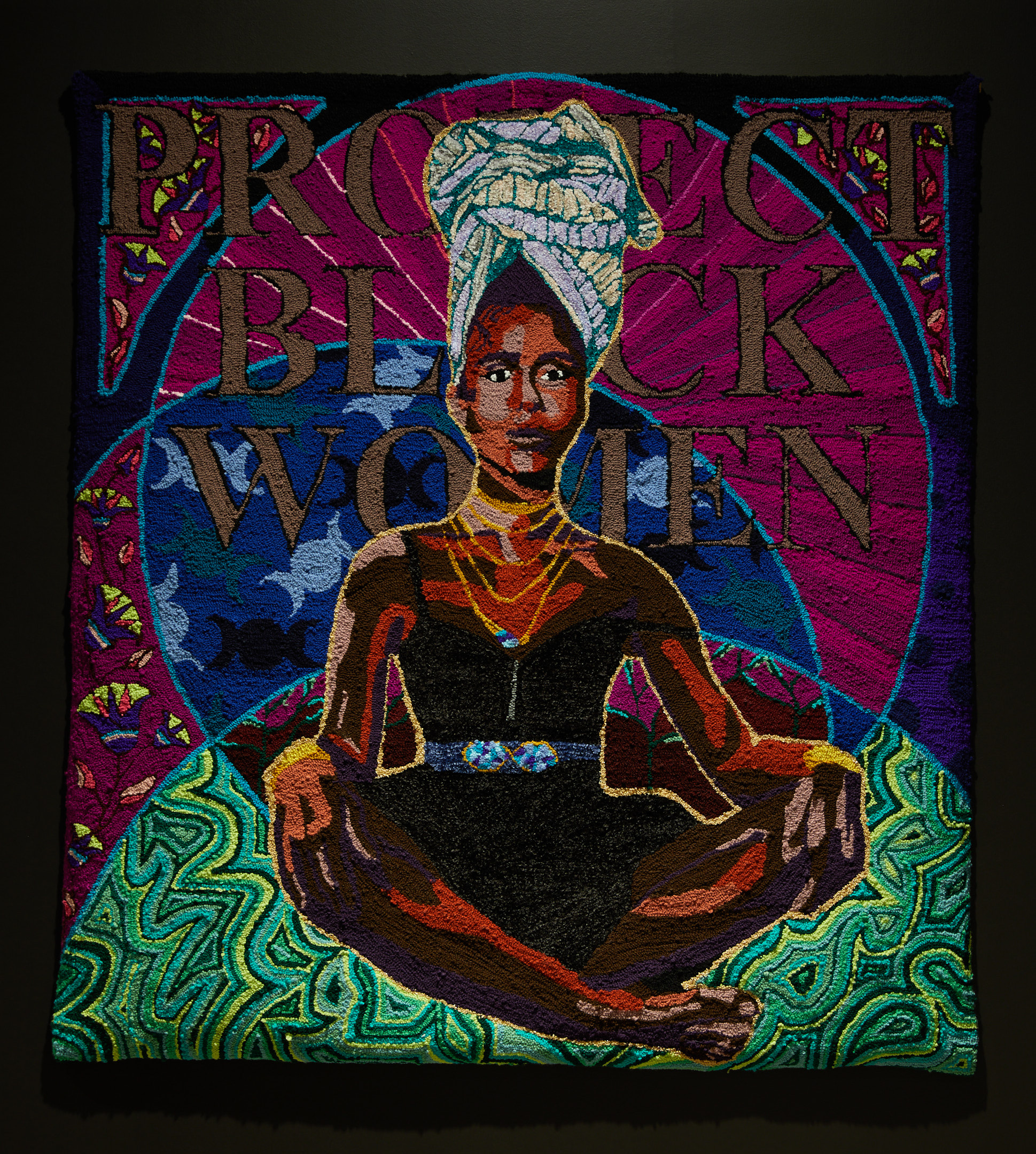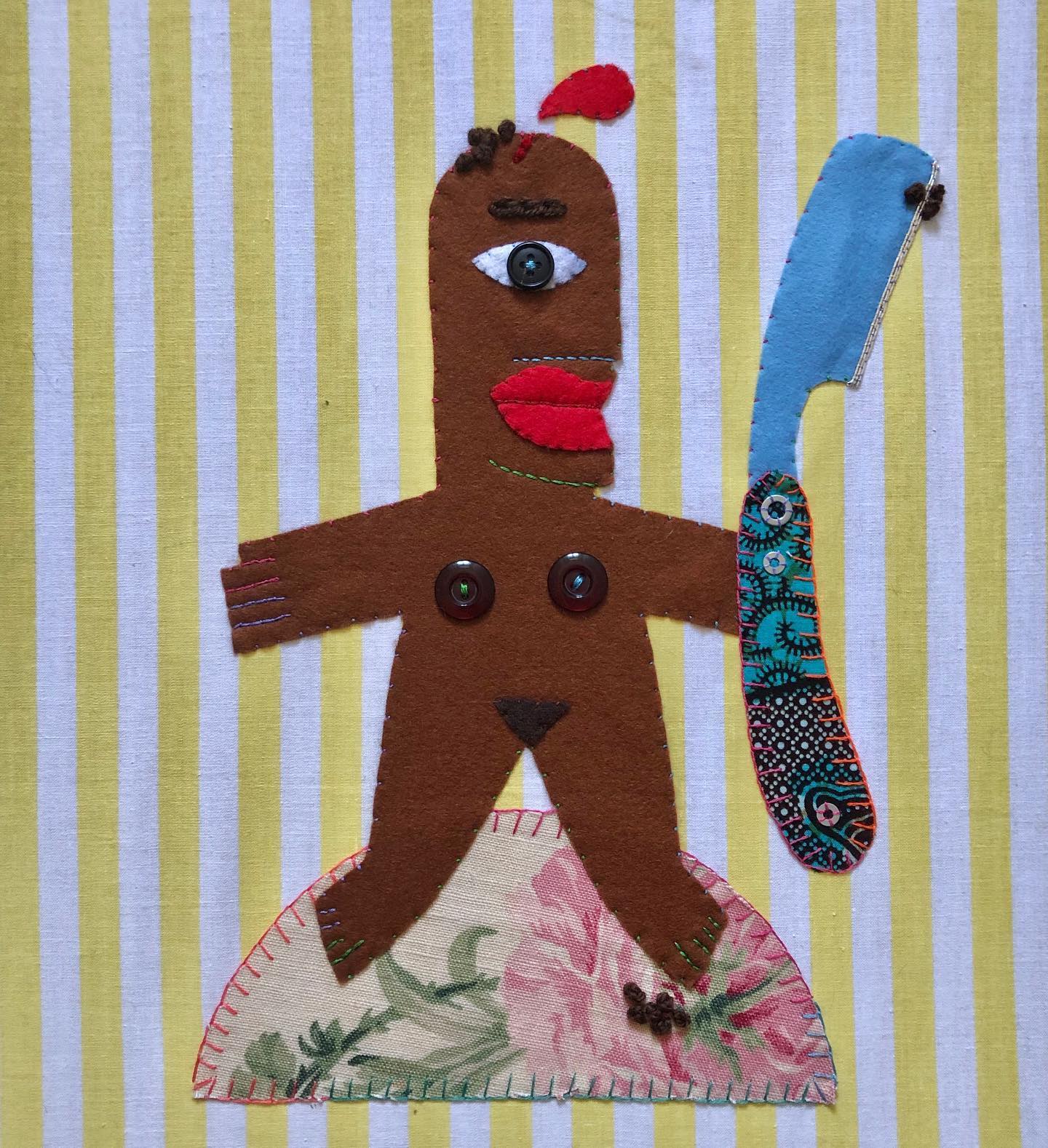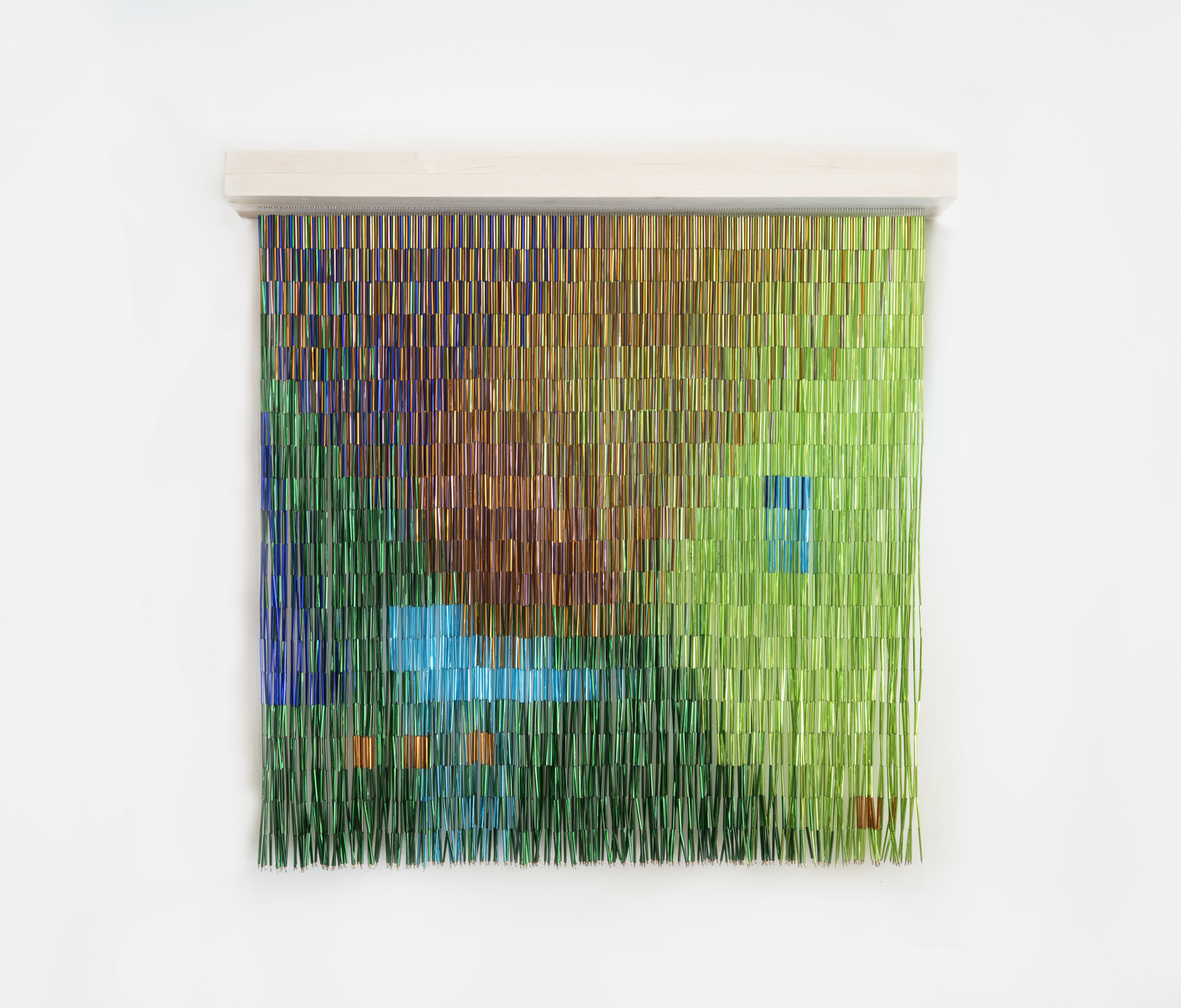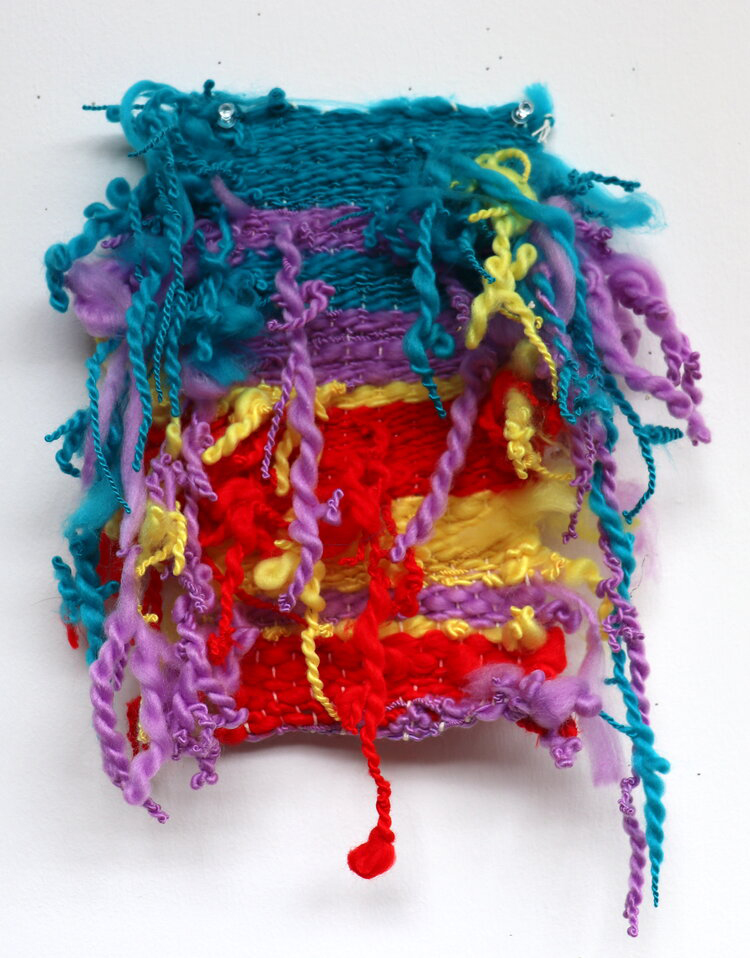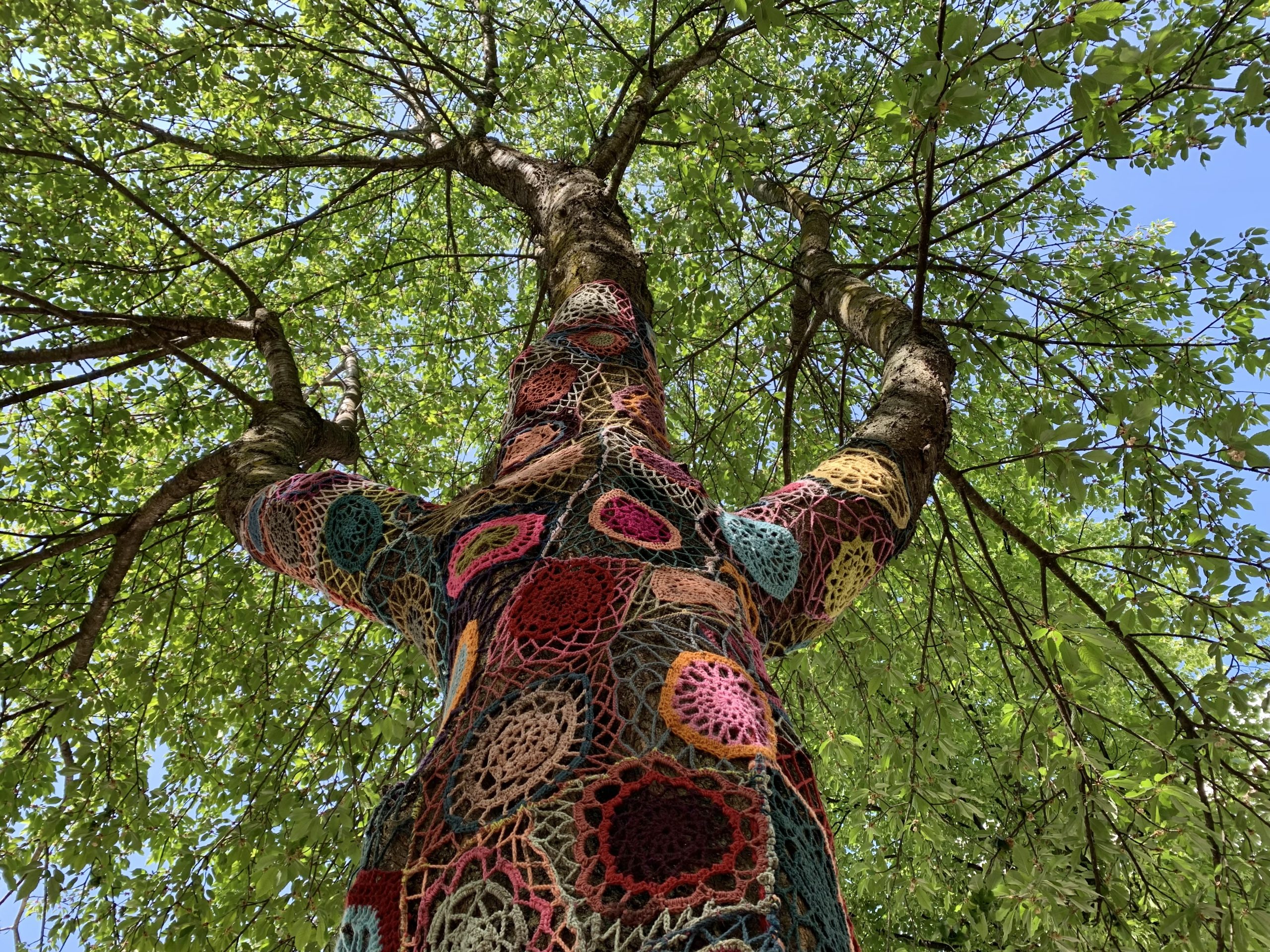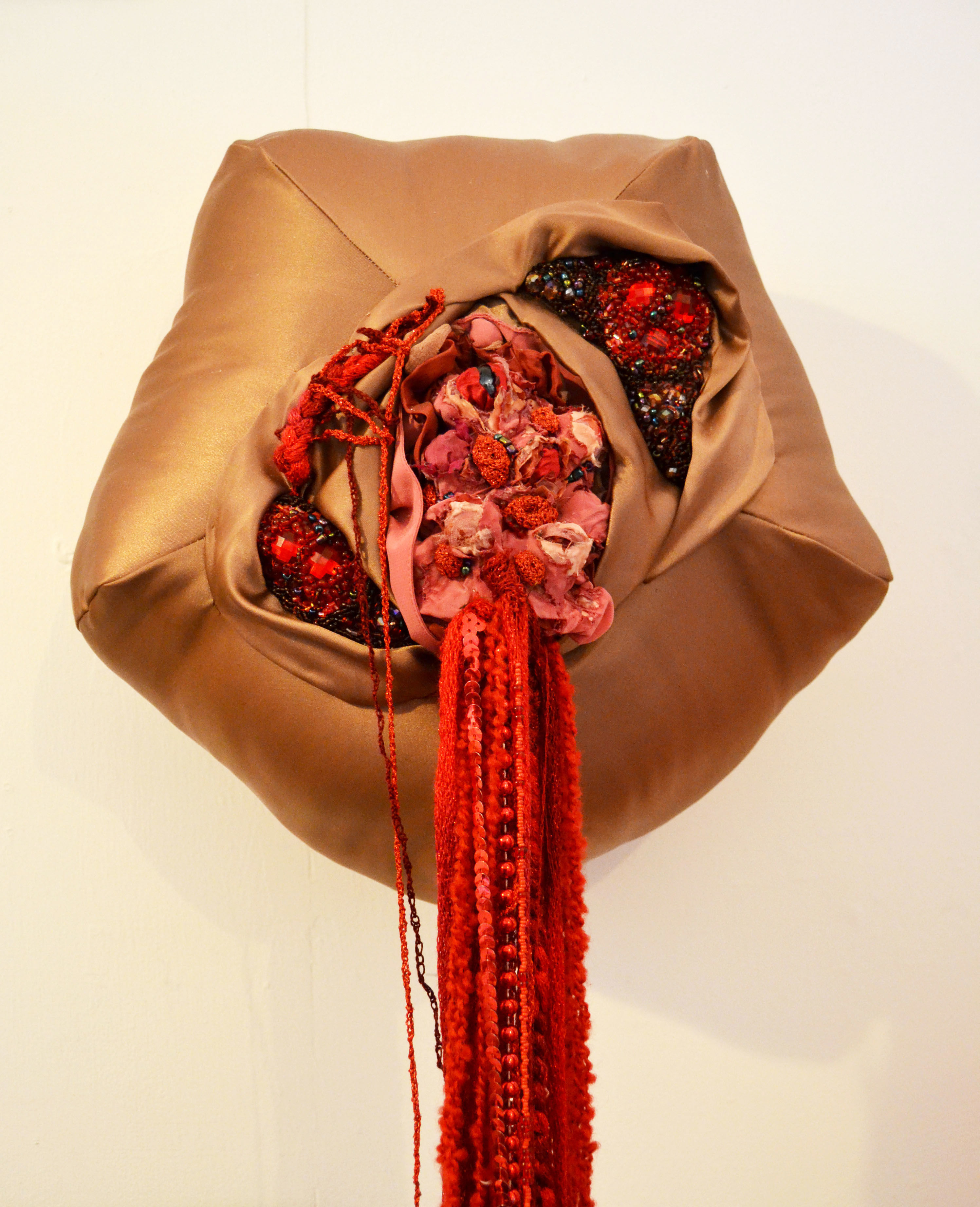Simone Elizabeth Saunders redefines textile art with ‘Black Nouveau’, blending tufting craftsmanship and cultural narratives to celebrate Black womanhood.
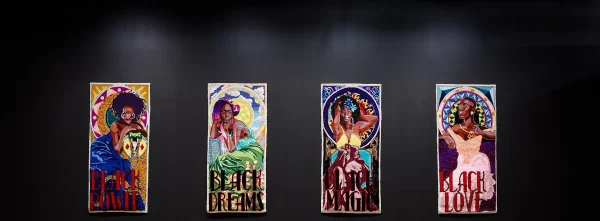
Name: Simone Elizabeth Saunders
Location: Calgary, Alberta, Canada
Preferred medium: Punch-needle and Rug-tufting
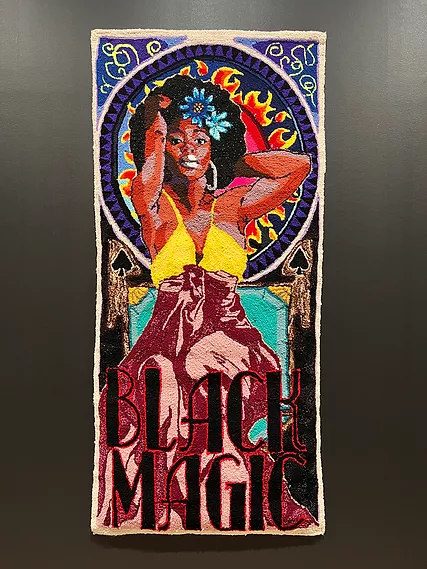
How or where did you learn how to stitch or sew?
I do have a degree from a fine art school in fibre, however, punch-needle and tufting was self-taught!
Some of our readers may be unfamiliar with tufting – how did you come to it, and what wisdom can you share about this tactile technique?
I started learning this technique starting with the punch-needle. The punch-needle is an analog version of the gun. I started small, wanting to understand the mechanism of the tool and realize which yarns to use and how tight to stretch my base, etc. To start, canvas is stretched over a frame that is held in place with tacks (generally carpet tacks). Then, you tuft!
I describe it as “painting with thread”. I moved up to the tufting gun quickly because I wanted to move up in size! It’s a powerful tool and it took a minute to synchronize with. Punch needle is the slow and steady and easy to learn and great for small details. I incorporate both tools in my textiles.
A starting list for tufting: embroidery scissors, tufting cloth, frame with tacking on the edges, bulky and medium weight yarns, and a punch needle or tufting gun! You’re set! Finishing a textile is a whole new labor of love, so it all depends what kind of textile you’re creating (whether it’s a rug or home décor or wall hanging). Disclaimer: it’s very addicting!
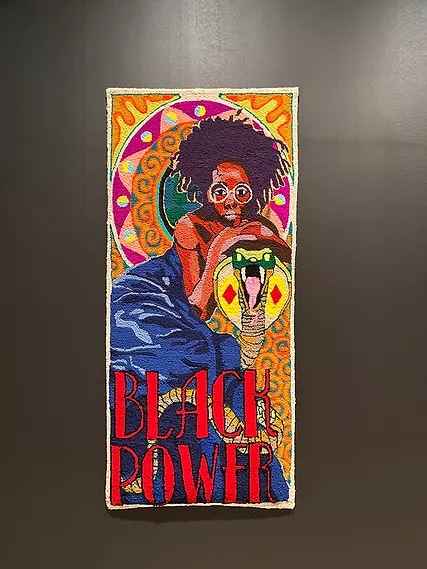
Do formal concerns, such as perspective and art history, interest you?
Absolutely, both contemporary events and history play an equal and impactful role in my textiles. I celebrate Black womanhood and draw from various inspirations — Art Nouveau being one big inspiration — to which I’ve created my style called, “Black Nouveau”.
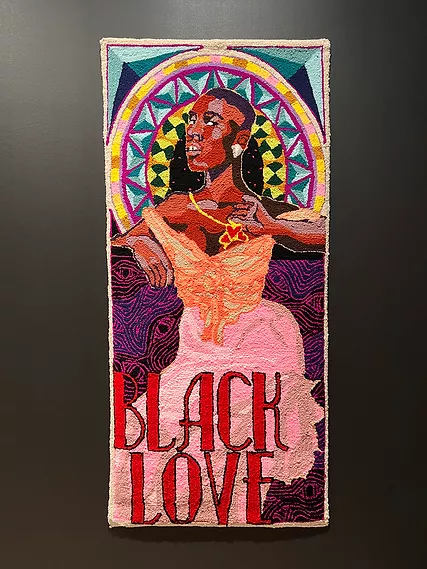
To what extent does your cultural background influence your work?
Everyday. Uplifting Black narratives of joy and resilience is what I champion most, celebrating the power and love of womanhood.
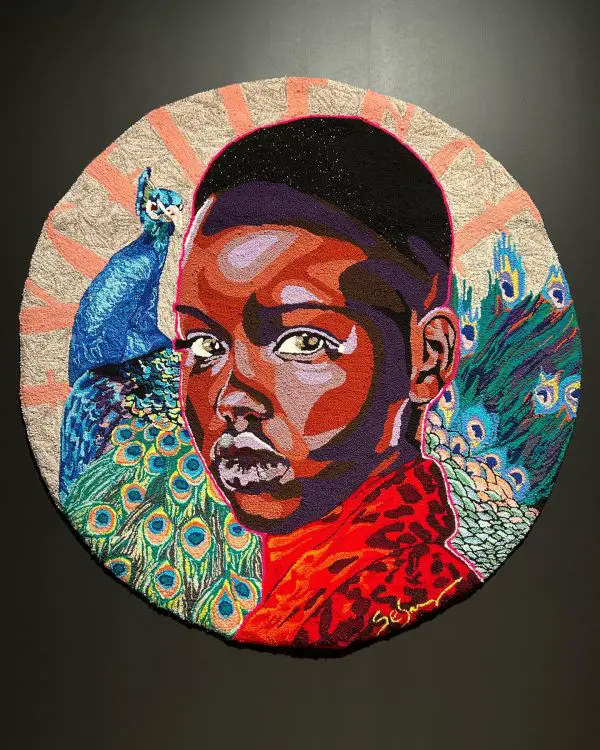
Do you have an existing embroidery heritage that you connect with?
I like to explore different fiber mediums, however, weaving, punch-needle and tufting is what suits me best. I like to create large works and these mediums accommodate my ambition in this way.
What other artists inspire you?
I am inspired, not only by visual artists, but Black artists of various platforms and generations who have honed their crafts and spark joy: Alicia Keys, H.E.R, Queen Latifah, Serena Williams, Nina Simone, Octavia Butler, Toni Morrison, Maya Angelou, Wangechi Mutu, Kehinde Wiley, Diedrick Brackens, Nick Cave… my list could truly go on!
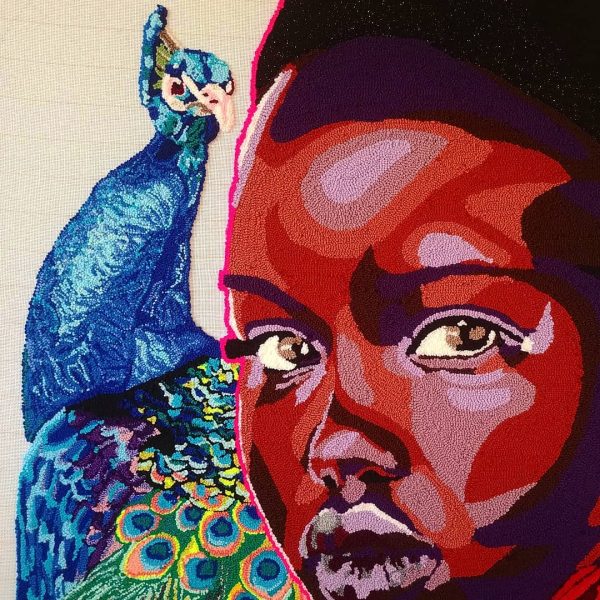
Do you have any secrets in your work you will tell us?
I don’t have secrets. But perhaps one secret I keep is, “time”. Don’t rush the process, relish in it. That’s the only way I can challenge myself with pattern and detail, by taking my time and committing to the work.
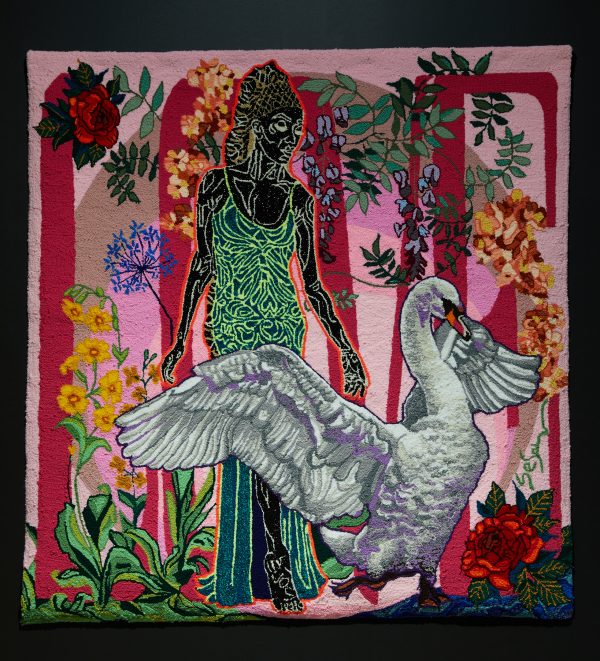
There is so much to love about Simone’s work. The immediate impact of the work is joyful – the boldness and contrast of colours, and the technical strength of the design draw you into the work. These are large scale pieces, necessary for the tufted format, and you feel that you could bury yourself in them. They celebrate their subjects with both power and grace.
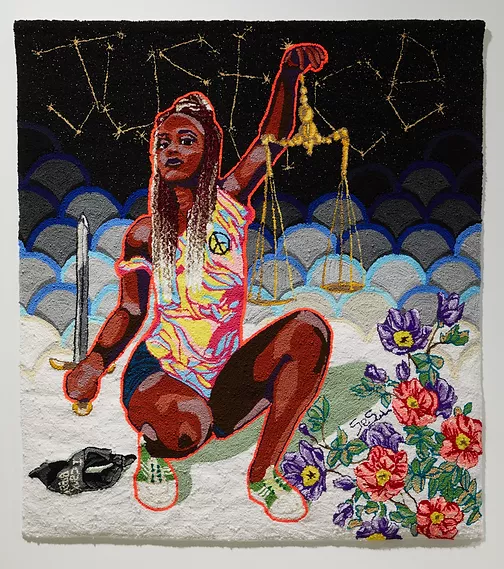
Simone’s concept of Black Nouveau is a masterstroke. In the same way that Art Nouveau sought to elevate the everyday, Simone reminds us all of the beautiful aesthetic of both the modern Black woman and also the tufted rug format.
She creates new contemporary icons that have an almost religious reverence, echoing the artistic approaches of painters like Alphonse Mucha, while wrangling a technique that doesn’t necessarily lend itself to intricate design. It’s brilliant work.
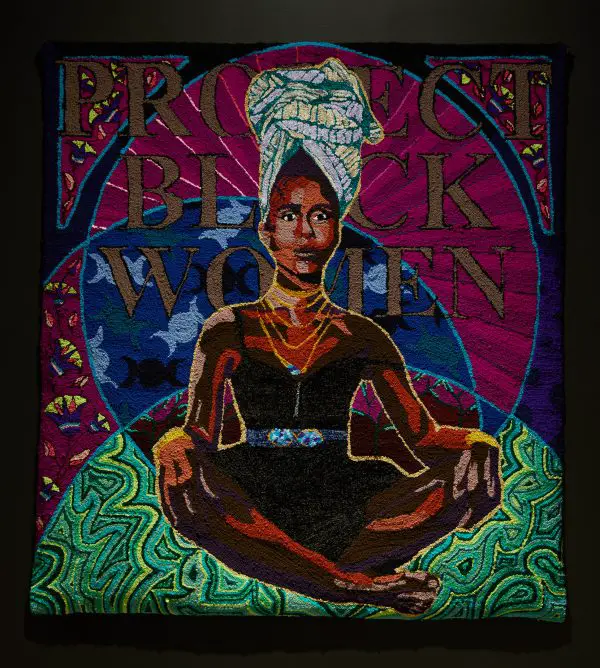
It is fantastic to see how much acclaim Simone is getting as her work continues to resonate with new audiences. You follow her trajectory on Instagram and at her website – you will not regret it.

